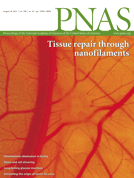
Maternal separation (MS), which can lead to hypothalamic pituitary adrenal (HPA) axis dysfunction and behavioral abnormalities in rhesus monkeys, is frequently used to model early adversity. Whether this deleterious effect on monkeys is reversible by later experience is unknown.
In order to unravel the mystery, a research group headed by Dr. MA Yuanye and HU Xintian from Kunming Institute of Zoology, Chinese Academy of Sciences made a study on the hair cortisol of rhesus monkeysafter 1.5 and 3 y of normal social life following an early separation. These results showed that peer-reared monkeys had significantly lower basal hair cortisol levels than the mother-reared monkeys at both years examined. They showed decreases in locomotion and initiated sitting together, as well as increases in stereotypical behaviors compared with the mother-reared monkeys.
It concludes that the deleterious effects of MS on rhesus monkeys cannot be compensated by a later normal social life, suggesting that the effects of MS are long-lasting and that the maternal-separated rhesus monkeys are a good animal model to study early adversity and to investigate the development of psychiatric disorders induced by exposure to early adversity.
The findings have been published in PNAS. More information is available at http://www.pnas.org/content/early/2011/08/12/1010943108.full.pdf+html?with-ds=yes
